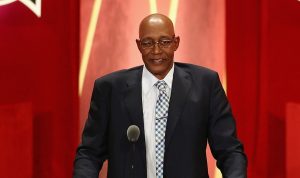Former NBA star Dwight Howard found himself embroiled in controversy as allegations of sexual assault surfaced in 2021, made by a man named Stephen Harper. Harper accused Howard of a series of serious charges, including assault, battery, emotional distress, and false imprisonment, citing non-consensual sexual acts during their encounter. However, Howard has denied these claims, stating that their encounter was consensual.
Who is Stephen Harper?
Stephen Harper, the accuser in the high-profile case against Dwight Howard, brought forward allegations of non-consensual sexual acts and emotional distress.
Also Read: Who was Tasha Butts? Georgetown women’s basketball coach dies at 41
The case drew attention to the complexities of personal relationships and the significance of consent, highlighting the need for comprehensive discussions around the boundaries and dynamics of interpersonal interactions. While the lawsuit was eventually dropped, the intense public scrutiny and speculation surrounding the case resonated long after its resolution, sparking broader conversations about the sensitive issues at its core.
Stephen Harper’s accusations of non-consensual sexual acts and emotional distress shed light on the importance of understanding and respecting personal boundaries. The controversy not only brought Howard’s personal life into focus but also underscored the broader societal conversations surrounding consent, power dynamics, and the nuances of navigating relationships.
Throughout the legal proceedings, Howard maintained his innocence, adamantly asserting that the encounter had been consensual. His steadfast denial of the allegations led to a heightened interest in the complexities of the case and the broader implications it carried for conversations around consent and personal autonomy.







